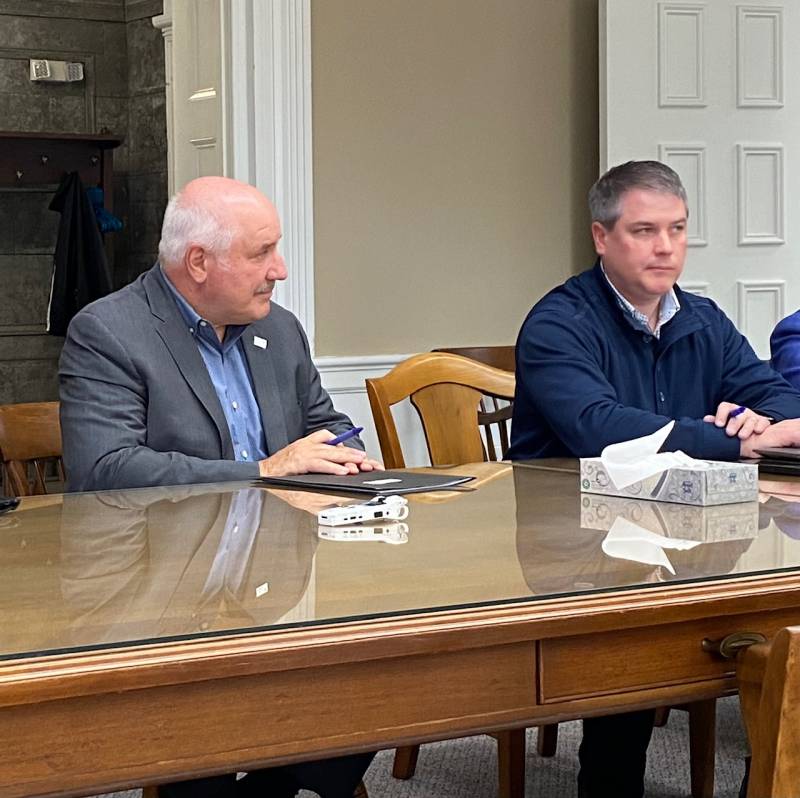
County legislators have so far given a thumbs up to Dr. James Sunser’s $37.3 million budget for Genesee Community College, a spending plan that includes a $100 per semester tuition increase and a request of $50,000 in additional funding from Genesee County to continue operations for 2023-24.
“I think it’s a very modest budget,” the college president said during Wednesday’s Ways and Means meeting. “As you can see, from the current approved budget, it's about $150,000 more than this year's approved budget. It looks to advance tuition by $100 a semester, for full-time students, and $10 a credit hour for part-time students.
“We worked hard with the state. We were hoping to be able to get a little more from the state, but we at least got flat funding for the current year, which is something that has been the norm for the last few years. We've asked the county to support us with the base prior year aid plus the $50,000 planned increase that we've talked about in prior years,” Sunser said. “And we feel strongly that we'll be able to operate within that budget, but it will be a challenge, just like it is for all of you as well.”
The proposed 2023-24 operating budget is $37,350,000, with a “sponsor share” of $ 2,786,374 to come from the county within a tax levy by that amount.
A public hearing will be necessary for this budget and related sponsor’s share, as the resolution to be voted on by the county Legislature states:
“That the Genesee County Legislature does hereby approve of the sponsor’s share of the operating budget of the Genesee Community College for the fiscal year September 1, 2023, through August 31, 2024, in the amount of $2,786,374 and cause the same to be included in the county tax levy for the year 2023.”
A vote is to go before the Legislature next week, and if approved, the budget, levy and public hearing will be set for 5:30 p.m. June 14 at the Old Courthouse, 7 Main St., Batavia.
During the conversation, Legislator John Deleo asked Sunser about the GCC radio station, a staple of this area for a decade that has become silent this past year. Sunser explained that maintaining a station — which was a club activity — for 24 hours a day was becoming “more and more difficult” to do, and the board made the decision to sell the license.
Two bids were received: one that offered “no dollars, they were just willing to take it,” Sunser said, and the second bidder that ended up purchasing the license through the FCC for $55,000. There is no radio, per se, as the station operates via online streaming, he said.
“So what we've done is we've moved away from the FCC as a licensed radio station, and we're on a streaming platform. So we're still providing the same opportunity to students to broadcast and have all that, but outside of the FCC regulations,” Sunser said.
